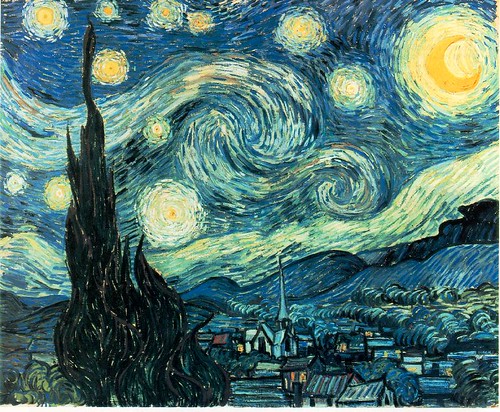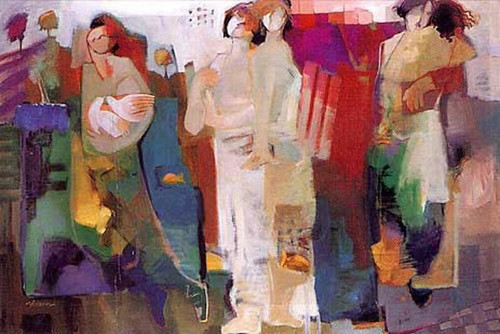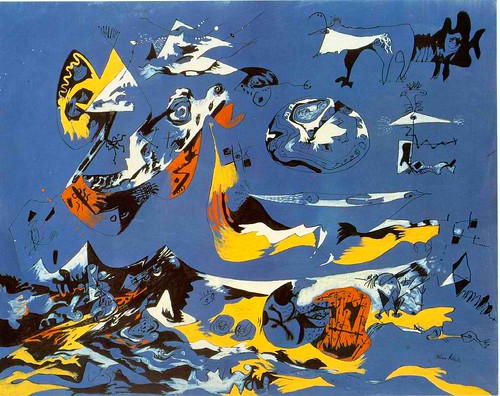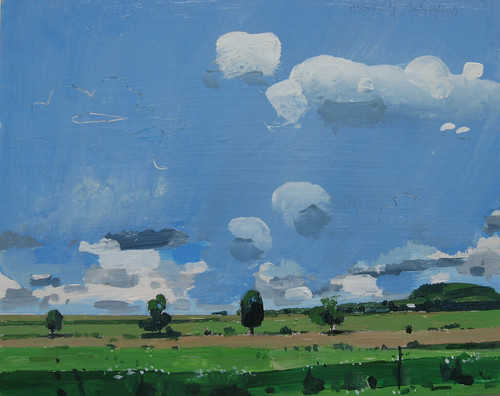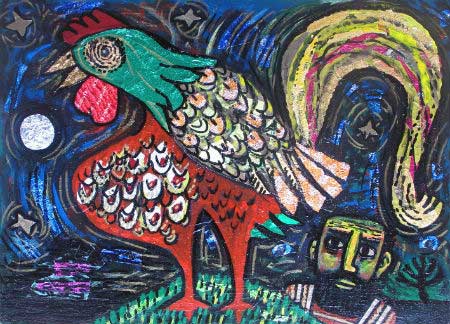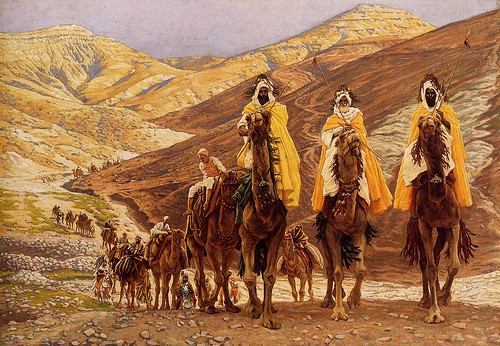
Journey of the Magi
by T.S. Eliot
A cold coming we had of it,
Just the worst time of the year
For a journey, and such a long journey:
The ways deep and the weather sharp,
The very dead of winter.
And the camels galled, sore-footed, refractory,
Lying down in the melting snow.
There were times when we regretted
The summer palaces on slopes, the terraces,
And the silken girls bringing sherbet.
Then the camel men cursing and grumbling
And running away, and wanting their liquor and women,
And the night-fires going out, and the lack of shelters,
And the cities dirty and the towns unfriendly
And the villages dirty and charging high prices:
A hard time we had of it.
At the end we preferred to travel all night,
Sleeping in snatches,
With the voices singing in our ears, saying
That this was all folly.
Then at dawn we came down to a temperate valley,
Wet, below the snow line, smelling of vegetation;
With a running stream and a water mill beating the darkness,
And three trees on the low sky,
And an old white horse galloped away in the meadow.
Then we came to a tavern with vine-leaves over the lintel,
Six hands at an open door dicing for pieces of silver,
And feet kicking the empty wineskins.
But there was no information, and so we continued
And arrived at evening, not a moment too soon
Finding the place; it was (you may say) satisfactory.
All this was a long time ago, I remember,
And I would do it again, but set down
This set down
This: were we led all that way for
Birth or Death? There was a Birth, certainly,
We had evidence and no doubt. I had seen birth and death,
But had thought they were different; this Birth was
Hard and bitter agony for us, like Death, our death.
We returned to our places, these Kingdoms,
But no longer at ease here, in the old dispensation,
With an alien people clutching their gods.
I should be glad of another death.
_______________________
An old Magi remembers his hard journey from long ago.
A hard time we had of it
He doesn’t regret it. He says—
I would do it again
But…
Finding the King of the Jews came with a price.
To be a witness of this Birth was to also experience a particular Death.
(The Magi had thought birth and death were different, but came find out otherwise.)
Once you get even an inkling of what it really means that Jesus is King—
Nothing is ever quite the same. Some things will die. For sure.
We returned to our places, these Kingdoms,
But no longer at ease here, in the old dispensations,
With an alien people clutching their gods.
Ain’t it the truth!
I know that when I really began to see the Kingdom of God for what it is—
Cherished assumptions about the nation and life I call mine had to die.
I was no longer at ease here, in the old dispensation.
Well, consider this:
When the Magi made their way home, we’re told they went by “another way.”
Of course they did.
Once you see the King, once you have the Epiphany—
You have to travel through this life by “another way.”
(Or betray all you have been granted to see.)
And to an “alien people clutching their gods”—
You will seem at best odd, and at worse…well, something quite bad.
Truth doesn’t come cheap.
The hard journey to a real Epiphany will cost you more than some…
Gold, frankincense and myrrh.
It will cost you the way you look at the world.
Something will have to die. And you may well mourn it.
To really see the birth of Christ for what it is,
Will bring you face to face with death—
Death to what you were once so comfortable with.
Eliot’s Magi concludes his memoir with this enigmatic line—
I should be glad of another death.
What does Eliot mean by that?
I’m not entirely sure, but I think he means his Magi to say something like this:
I’m ready even for more,
More Epiphanies,
More Births,
More Stars in the East…
Which will of course lead to more Deaths.
That’s the way it works.
The birth of truth is death to the lie—
And there are a lot of lies we’ve leaned to love and cherish.
The price of truth may be the willingness to endure a certain sorrow—
The sorrow that comes from the death of a loved and cherished lie.
But now I fear I’ve made the poet say too much.
Because as another poet warned:
Tell all the Truth but tell it slant—
Success in Circuit lies
Too bright for our infirm Delight
The Truth’s superb surprise
As Lightening to the Children eased
With explanation kind
The Truth must dazzle gradually
Or every man be blind—
BZ
(The second poem is by Emily Dickinson.)
(The artwork is Journey of the Magi by James Jacques Joseph Tissot)

